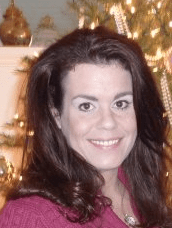How Adults Learn
MedEdPearls August 2017: How might you apply the insights from Tayler and Hamdy’s AMEE Guide 83 on adult learning theories to enhance curriculum development, teaching, and assessment in medical education?
When medical students matriculate they are somewhere between child (pedagogy) and adult (andragogy) learners. We assume adults learn differently than children because they’ve had more life experiences, are motivated by their perceptions and personal needs, have an interest to direct their learning experiences, and have greater needs to apply learning in and to specific contexts.
In AMEE Guide 83, Tayler and Hamdy provide a practical guide to Adult Learning Theories
The guide provides a history and overview of adult learning theories and practical ways the theories can be used for curriculum development, teaching, and assessing learning. The authors also provide a table of “adult learning model in action” which provides specific roles for learners and teachers. The model shows a variety of ways to apply theories that can help in the instructional design process for one-to-one discussions, small group work, and large lectures.
What effective applications of adult learning theories have you seen in Medical Education? Join the conversation in Twitter at #MedEdPearls

Megan M. Haak, MA, ABD
Medical College of Wisconsin Affiliated Hospitals, Inc.
Graduate Medical Education
Additional Information
- Jean Bailey, PhD – Virginia Commonwealth University School of Medicine
- Carrie Bowler, EdD, MS, MLSCM (ASCP) – Mayo Clinic School of Continuous Professional Development
- Kristina Dzara, PhD, MMSc (Educators ’16; Assessment ’16; HCE 2.0 ’17) – Saint Louis University School of Medicine
- Shanu Gupta, MD, SFHM – University of South Florida Morsani College of Medicine and Tampa General Hospital
- Jennifer Hillyer, PhD – Northeast Ohio Medical University
- Larry Hurtubise, PhD, MA (HCE 2.0 '16) – The Ohio State University
- Anna Lama, EdD, MA – West Virginia University School of Medicine
- Machelle Linsenmeyer, EdD, NAOME (Assessment ’07) – West Virginia School of Osteopathic Medicine
- Skye McKennon, PharmD, BCPS, ACSM-GEI – Washington State University Elson S. Floyd College of Medicine
- Rachel Moquin, EdD, MA – Washington University School of Medicine
- Stacey Pylman, PhD – Michigan State University College of Human Medicine
- Leah Sheridan, PhD – Northeast Ohio Medical University
- Lonika Sood, MBBS, MHPE – Washington State University Elson S. Floyd College of Medicine
- Mark Terrell, EdD – Lake Erie College of Osteopathic Medicine
- Stacey Wahl, PhD – Virginia Commonwealth University School of Medicine
Harvard Macy Institute
Harvard Macy Institute
The Harvard Macy Institute educates, connects, and serves health care leaders around the globe by providing advanced faculty development programs, thought leadership, and impactful networking opportunities.
6 Programs

